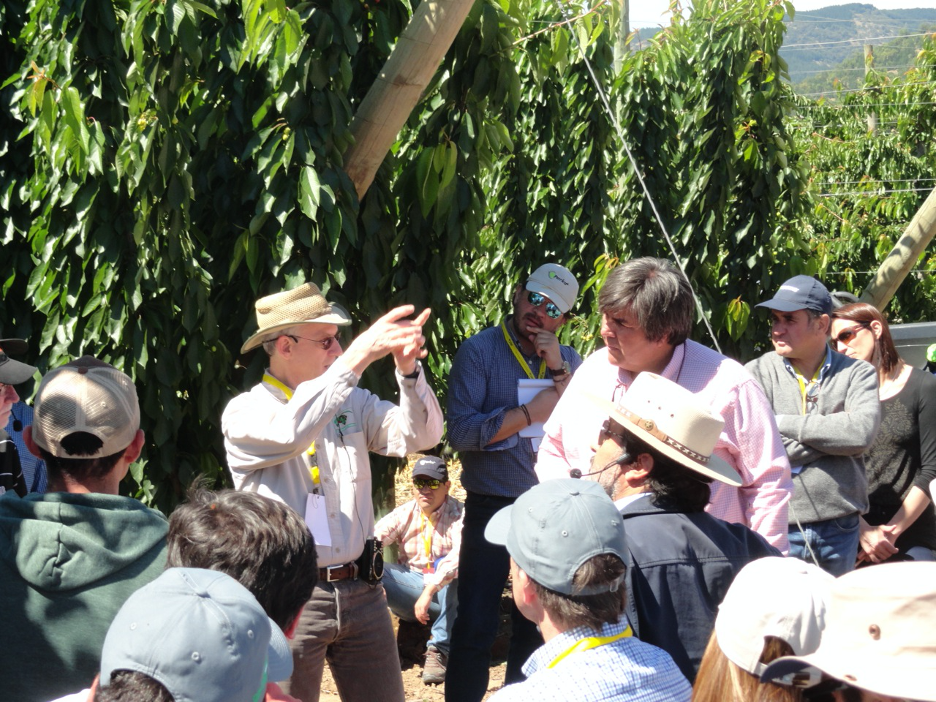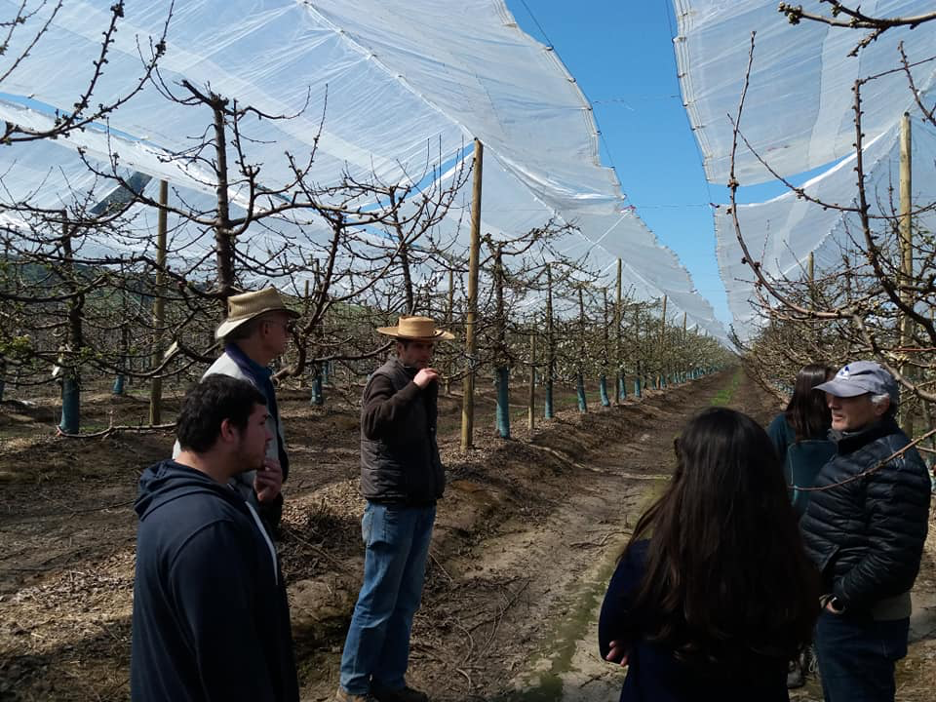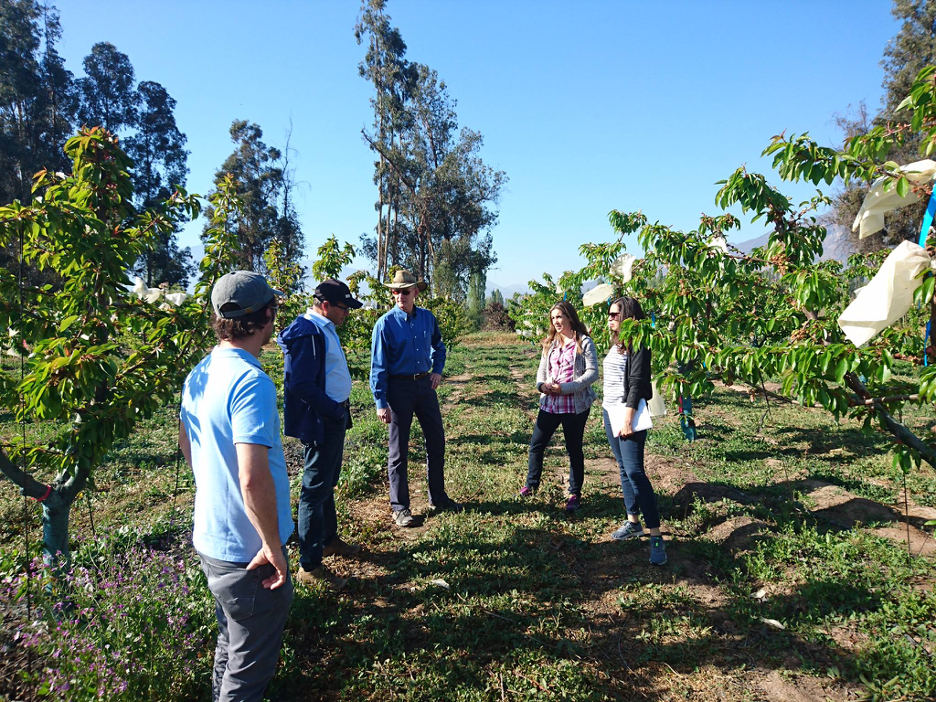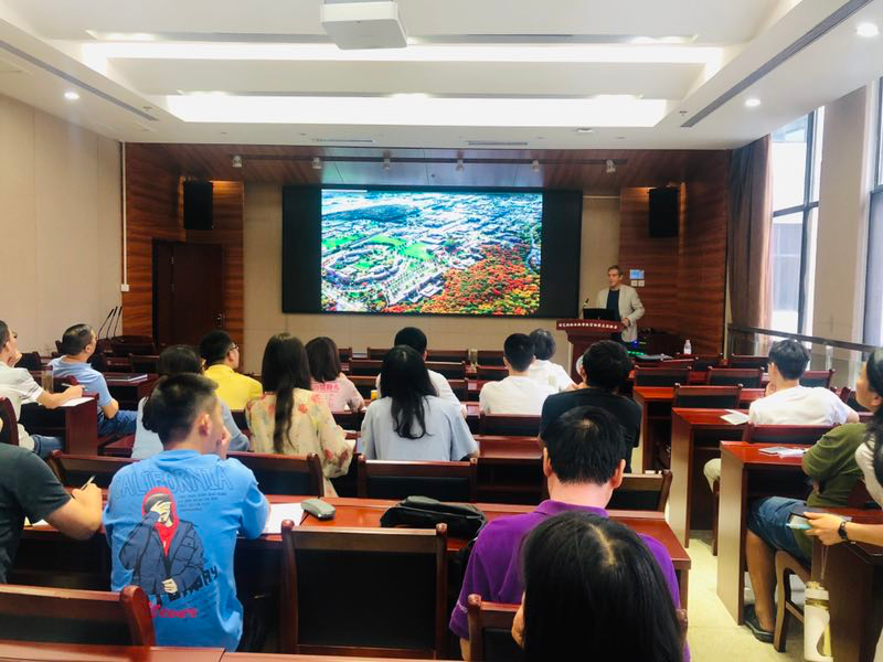Department of Horticulture
Read about the Department of Horticulture and their work internationally
About us
Horticulture has been part of Michigan State University since the pioneer land-grant institution opened in 1857. The Horticulture Department has offered master of science degrees since 1910 and Ph.D. degrees since 1927. Known throughout the world for its excellence in teaching, research and extension, the department has outstanding facilities such as computerized greenhouses, research and teaching laboratories, floral design laboratory, retail plant shop and an auto-tutorial laboratory for students. Its faculty members actively engage in cutting-edge and impactful research and extension programs.
The Department is leading the way in new discoveries in the plant sciences; promoting the use of plants and food for improved human health and a safe environment; improving the characteristics, quality and availability of horticultural products; and strengthening the competitive position of the world's horticultural industries.
Faculty members possess a diverse array of expertise - both interdisciplinary (e.g., breeding, genomics, development, physiology, metabolism, molecular biology, and sustainable production), and commodity based (e.g., fruits/pomology, vegetables, viticulture, floriculture, nursery crops, postharvest, landscape design and ecology, and marketing). They utilize in their research, teaching and outreach programs, at both the national and international levels.
It has one of the largest undergraduate programs in the U.S. with over 110 students majoring in Horticulture B.S. Degree Program and nearly 100 students in Certificate Program through the Institute for Agricultural Technology. The Department has been one of the major sources of horticulture faculty throughout the U.S., and currently have 50 graduate students working with faculty in M.S. and Ph.D. research programs.
International Programs:
- Research:
Tree fruit crop production and orchard/vineyard management; Controlled environment production of ornamental and food crop; Post-harvest physiology (practical and fundamental aspects of preserving the quality of fresh fruits and vegetables after harvest and during storage to mitigate flavor/nutrition losses); Genomics, Computational Plant Biology and Molecular Breeding; Abiotic and biotic stress response, and biological, genetic and cultural adaptations.
- Teaching/Training:
A number of faculty members in the department have taught courses and offered seminars at institutions of higher learning around the globe. The content of those lectures and workshops ranges from standard methods of horticultural crop production to breeding, and from fundamental molecular plant biology to trainings in the latest technologies and orchard/crop management methodologies.
- Van Nocker teaches courses at both Northwest A&F and at Huazhong University in Wuhan (China) to undergraduate students in the areas of molecular genetics of horticultural crops and techniques of scientific writing for research articles and grant proposals.

- Each year Dr. Ning Jiang teaches for two weeks in courses at Shanghai Xiaotong University (China) on the topics like transposable genetic elements and the molecular evolution of non-coding regions of the plant genome.
- Rebecca Grumet participates in the Transatlantic Summer School – where she has lectured on Current Trends and Frontiers in Plant Sciences, CEPLAS (Cluster of Excellence on Plant Sciences), University of Cologne (Germany)
Fulbright Scholarship Program awarded a Distinguished Chair at the Indian Agricultural Research Institute (IARI) to Dr. Randy Beaudry to share design elements of the hybrid evaporative cooling/solar powered refrigeration storage, and work with students and growers on aspects of site selection and installation of solar powered-refrigerated room for perishables.

Each summer faculty participate in delivering an international short-course “Agricultural Biotechnology and Biosafety of Genetically Engineered Crops” offered by MSU’s WorldTAP team to international stakeholders.
Extension/Outreach:
Examples of outreach efforts to extend science-based findings as recommendations to growers and agriculture leaders include:
- African Biotechnology Network of Expertise (ABNE/ http://nepad-abne.net) Project funded by the Bill & Melinda Gates Foundation (since 2008); International Food Biosafety and
- Biotechnology Research and Extension Center, Hacetepe Univ. (Ankara Turkey); African Partnership Alliance at MSU;
- USAID Horticulture Innovation Laboratory – Integrated soil health and nematode management for small-holder potato farming systems (Guatemala) / - Netting Technology for vegetable growers in Sub-Saharan Africa (Project to assess the scalability of eco-friendly insect-exclusion netting in Kenya); Soil health management in selected vegetable value chains of smallholder farms in 5 districts in Malawi.
Current International Projects:
Fresh-market sweet cherry production practices in Chile: Dr. Greg Lang has worked in Chile for the past decade, and through these collaborations the size of Chile’s sweet cherry industry has more than doubled and the country has become the leading fresh market sweet cherry exporter worldwide. Dr. Greg’s efforts typically involve practical research presentations to growers and workshops with groups of growers in traditional and protected production systems to mitigate climatic risks. In addition, he served as the scientific advisor for the development of one of Chile’s two sweet cherry breeding programs, which is based at the Catholic University in Santiago, led by a former graduate student, Dr. Marlene Ayala.



Preserving the postharvest quality of fruits and vegetables: Dr. Randy Beaudry has travelled to several countries in support of shared research and education interests. Projects include past work with Konkan Agricultural University in India and the Department of Agriculture in Thailand in support of mango storage evaluations (2004 to 2009) and ongoing research and education linkages with institutions in Chile (Fulbright Research Scholar at Talca University – apple and blueberry storage), Brazil (Federal University in Paraiba), and India where he is currently engaged in work to develop low-cost, grid-independent cold storage options. Dr. Beaudry works with colleagues at the Indian Agricultural Research Institute (IARI), New Delhi, to develop hybrid (solar powered and evaporatively cooled) cold-storage structures for small-holder farmers (https://coolsunproject.com/farm-sunfridge/).


Abiotic/environmental stress mitigation in horticultural crops: Dr. Steve VanNocker initiated collaborations with the College of Horticulture, at Northwest Agriculture and Forestry University in Xi’An, China in the Fall of 2018. These efforts are to characterizing the genetic pathways linking stress (water deficit, high temperature) with flowering in horticultural crop including apple and grape. Like MSU, Northwest A&F is a large agricultural research university centered within a state important for production of fruit crops. Relevant studies include effect of chronic drought on juvenility and phase change, salt and drought effects on expression of genes involved in hormone catabolism, and molecular mechanisms of differential mRNA splicing under stress.

Understanding and Improving cold hardiness in grapevine physiological: Integration of environmental cues and sugar and hormone signals is a collaborative effort between Dr. Paolo Sabbatini and viticulturists at the University of Udine (Department of Agricultural and Environmental Sciences) in Italy. The project aims to:
1) Evaluate transcriptional, physiological, and biochemical responses to acute freezing stress in greenhouse-grown grapevines genotypes with varying levels of freezing tolerance in the presence or absence of ABA foliar applications
2) Elucidate the expression pattern, promoter activity and responsiveness to cold stress of VvMSA genes from grape genotypes with varying levels of freezing tolerance by heterologous expression of those cloned genes in Arabidopsis under ABA and cold treatments.
Focus Countries:
Brazil (Beaudry), Chile (Beuadry, Lang), India (Beaudry, Brainard), Nepal (Brainard), Italy (Sabbatini), Spain (Einhorn), Senegal (Nair), China (Jiang, van Nocker), Israel, Turkey (Grumet), Korea (Han), Middle East (Nair), Malawi (Melakeberhan)
Education Abroad Programs:
The Horticulture Department currently offer one faculty-led study abroad experience for undergraduate majors and others interested in a global view of specialty crop production and marketing. This course, International Studies in Horticulture (HRT 475), is a two-week program in early summer that splits time between London, England and Amsterdam, Denmark. The overall goal is to expose students to horticulture techniques and issues in this region of the world – through topics that include modern horticulture technology in the Netherlands and the historic aspects of horticulture in the U.K.
Recent Publications:
M. U. Akram, A. B. Uğuz, R. Yılmaz, U. Uygun, C. Y. Tüzün, Ş. B. Topaloğlu, A. Salantur, A. D. Dissanayake, M. G. Nair. 2019. Fatty acid and antioxidant profiles of selected Turkish wheat landraces. International conference on wheat diversity and human health. Istanbul, Turkey, October 22-26, 2019
Soysal, D., L. Demirsoy, I. Macit, G. Lang, and H. Demirsoy. 2019. The applicability of new training systems for sweet cherry in Turkey. Turkish J. Agric. Forestry 43:318-325.
Martin, T., M. Saidi, S. Niassy, S. Simon, F. Vidogbena, L. Parrot, S. Ekesi, E. Deletre, S. Subramanian, F. Assogba-Komlan, V. Baird, K.K.M. Fiaboe, M. Ngouajio, J.E. Simon, and A. Ratnadass. 2018. Insect net: a novel technology to promote integrated pest management on horticultural crops in Africa. Acta Hortic. 1225: 43-52
Lang, G.A. (editor). 2019. Achieving sustainable cultivation of temperate zone tree fruits and berries. Vol. 1 (520 p.) - Physiology, genetics and cultivation / Vol. 2 (470 p.) - Case studies. Burleigh Dodds Science Publishing, Cambridge, U.K.
Awards Received by Faculty:
Dr. Greg Lang 2019: Cherry Research Award, presented every 4 years by the Italian Academy of Agriculture, University of Bologna, and the Vignola Cherry Growers Association.
Dr. Paolo Sabbatini 2018: Elected international member of the Italian Academy of Wine and Grapevines (Accademia Italiana della Vite e del Vino) – only five members from outside Italy ever received this honor.
Dr. Todd Einhorn 2019: Won a competitive University of Pisa Visiting Fellow Award for 2019
For more information, contact:
Dr. William Vance Baird, Ph.D.
Professor and Chair
Department of Horticulture
Email: bairdw@msu.edu
Website: https://www.canr.msu.edu/hrt/



 Print
Print Email
Email